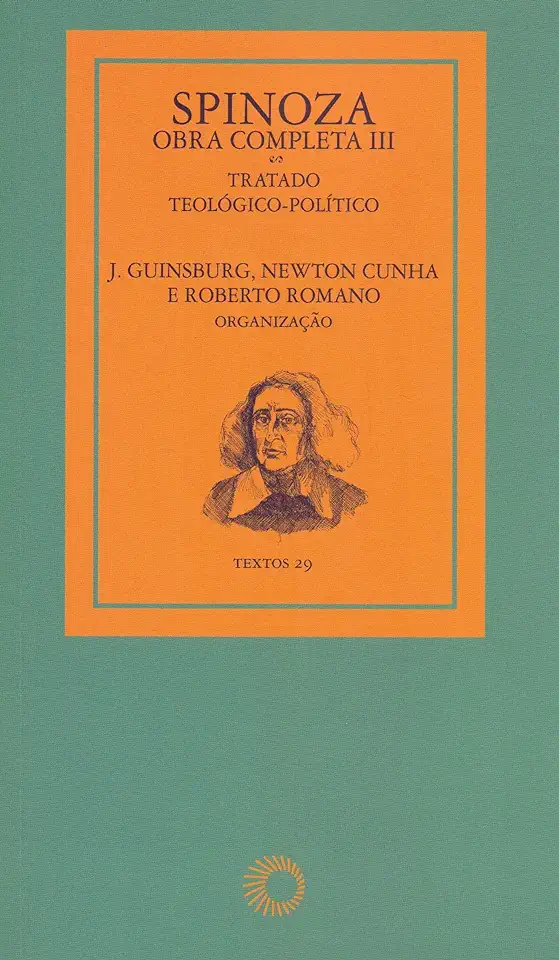
Spinoza - Complete Works III - Theological-Political Treatise - Cunha, Newton / Guinsburg, J.
Spinoza's Theological-Political Treatise: A Masterpiece of Enlightenment Thought
Baruch Spinoza's Theological-Political Treatise is a seminal work of philosophy that has had a profound impact on Western thought. First published in 1670, the Treatise is a powerful defense of freedom of thought and expression, and a scathing critique of religious superstition and intolerance.
Spinoza argues that the Bible is not the literal word of God, but rather a human document that is subject to interpretation. He also argues that the state has no right to interfere in religious matters, and that individuals should be free to believe whatever they want, as long as they do not harm others.
The Treatise is a courageous and provocative work that challenges many of the fundamental assumptions of traditional religious thought. It is a must-read for anyone interested in the history of philosophy, religious thought, or the defense of individual liberty.
A Defense of Freedom of Thought and Expression
Spinoza's Treatise is a passionate defense of freedom of thought and expression. He argues that these freedoms are essential for the pursuit of truth and the advancement of human knowledge. He also argues that these freedoms are necessary for a just and peaceful society.
Spinoza writes, "The freedom of philosophizing, that is, the freedom to think and speak according to one's own reason and judgment, is absolutely necessary for the progress of science and the well-being of the state." He also writes, "It is impossible to conceive of a free state in which men are not allowed to speak and write freely."
Spinoza's defense of freedom of thought and expression is a powerful reminder of the importance of these freedoms for a free and democratic society.
A Critique of Religious Superstition and Intolerance
Spinoza's Treatise is also a scathing critique of religious superstition and intolerance. He argues that these are the root causes of much of the violence and conflict in the world. He also argues that these are the enemies of true religion, which is based on love and compassion.
Spinoza writes, "Superstition is the fear of God, while religion is the love of God." He also writes, "Intolerance is the offspring of superstition."
Spinoza's critique of religious superstition and intolerance is a powerful reminder of the dangers of these forces. It is a call for a more tolerant and compassionate world.
A Must-Read for Anyone Interested in Philosophy, Religion, or Liberty
Spinoza's Theological-Political Treatise is a must-read for anyone interested in philosophy, religion, or liberty. It is a challenging and provocative work that will change the way you think about these important issues.
The Treatise is a masterpiece of Enlightenment thought, and it is still relevant today as it was when it was first published over 350 years ago. If you are interested in learning more about the history of philosophy, religious thought, or the defense of individual liberty, then I highly recommend reading Spinoza's Theological-Political Treatise.
Enjoyed the summary? Discover all the details and take your reading to the next level — [click here to view the book on Amazon!]